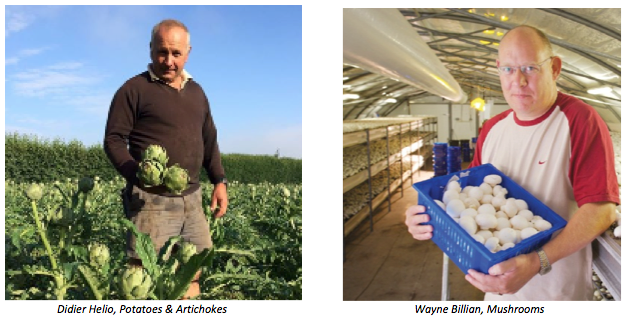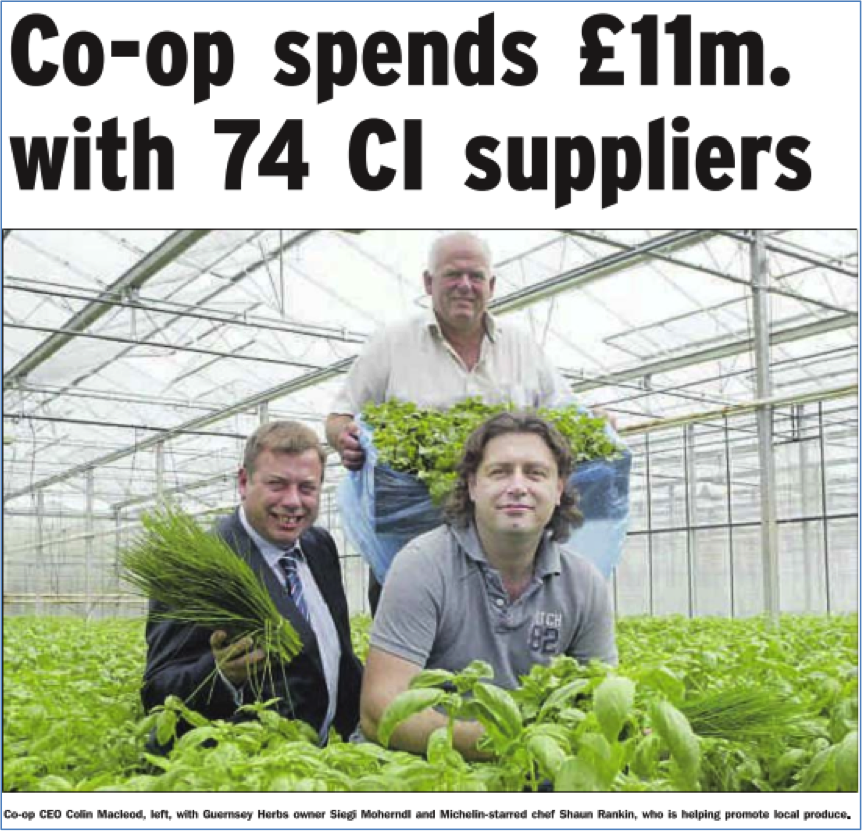Our Policy on Local Sourcing

In response to some members’ questions over the last few days, I thought it would be useful to clarify the Society's policy on local sourcing.
Contrary to some speculation, let me firstly state that the proposal to consolidate our food warehousing in the UK will have no impact whatsoever on our record of being our islands biggest supporter of local producers. In fact the opposite is true. Despite our proud record we believe there is even more we can do.
Producers will continue to deliver direct to our stores, as they do now. Farm to fork in the quickest time possible. There is no better or fresher way to do it.
There is no point dwelling on the problems faced by our local growing industry other than to stress they are facing very hard times. The centralised buying policies of some of their customers on the mainland, combined with what local producers see as unfair and over-subsidised competition from elsewhere, has caused a major contraction of this business sector.
We cannot replace the market lost by the growers, we simply do not have the capacity, but we can lessen the pain. Dealing locally has other important social benefits too, not least the lessening of our carbon footprint. We are all familiar with the concept of food miles, together with the realisation that the hunt for fresh food and vegetables all over the world might not always be in the best interests of the environment. It is important to try and balance the desire for something new and different against support for local industries that can deliver to our door from a farm down the road.

Running concurrently to this theme is the greater realisation of the importance of seasonality, which we had almost lost from the global food chain. We were getting used to having fresh strawberries all year round, not just in Wimbledon fortnight, and intensive growing practices round the world meant we could follow one crop in every month of the year.
And of course there are health issues, for I am convinced that a greater realisation, particularly among the young, of the origin and importance of local food will generate a greater willingness to celebrate the arrival of this year’s crop by eating it. The five units a day will be easier to achieve if a connection between food and neighbourhood is more actively promoted.
So, our policy. We define 'Local' as products that are either made, grown or reared locally, in addition to those caught in local waters.
Whilst we have added a number of new suppliers in recent years, the fundamentals of what we believe to be the correct approach have held true for the last 20 years or so.
Long term relationships
Growers and suppliers get us for the long term. This gives them confidence to invest in their infrastructure and product development. Unlike many retailers, providing the quality of production remains good, we will not play one supplier off against another to get short term advantage. Many of our supplier relationships go back 25 years. We will not look to replace anything for which we already have a local provider.
We buy local - first and foremost
If great products are being produced locally, we buy them wherever we can. Also, unlike others we will not force local products to compete against cheaper imports, providing the price differential is not extreme. Of course there are times when the business ethic kicks in. The Channel Island Co-operative Society is owned by its members and many are very conscious of the cost of food. Their interests must be catered for as well and essential food provided for as fair a price as we can manage. Our responsibilities must be balanced.
We encourage and nurture new entrants
By helping smaller producers with things like labelling, packaging and demand forecasting, newcomers to local production have help setting up and building their businesses safely and securely, comforted in the knowledge that they have a customer who will support them. We do not insist on sufficient volumes to supply all our stores, in fact we have several suppliers that just supply one or two stores as their businesses are still in the infancy stage. We continue to be interested in seeing anyone who has interesting development ideas to fill some of the gaps in the local supply base.
We help with supply challenges
If a producer anticipates a surge in product availability, perhaps due to weather, we can step in and run a promotion to help ensure that only a minimum of product is wasted.
So, what are the results?
We have seen spectacular results from our nurturing and community focused policy.
Sales of local have steadily risen as consumers continue to recognise the benefits of buying local and, despite the disappointment of the closure of the main bakeries on both islands, we estimate that we will again spend around £10,000,000 with local producers this year.

Our community benefits too. This local investment creates employment in our agricultural sector, helping to manage our countryside at the same time. Additionally it supports diversification in our economy. The land is then protected from encroaching development and the views across our islands are safeguarded for future generations to enjoy as much as we do.
Unfortunately, agriculture is not likely to return to the key position in our economy it once had, but by supporting local we all have a part to play in arresting its decline and passing the benefits it brings onto our children.
